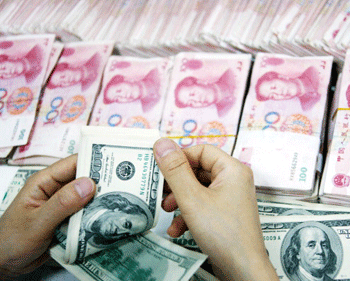 On Thursday the People’s Bank of China (PBOC) cut regulated bank lending rates by nearly a third of a percentage point, and this could make a lot of US real estate investors very happy.
On Thursday the People’s Bank of China (PBOC) cut regulated bank lending rates by nearly a third of a percentage point, and this could make a lot of US real estate investors very happy.
In addition to the rate cut, the central bank also made a rule change that could further reduce borrowing rates for companies with good credit by an additional three-fifths of a percentage point. This is good news for US homeowners and probably even better news for US real estate brokers trying to market luxury real estate in the US to Chinese buyers. Here’s why.
During China’s previous economic stimulus in 2008-2009, despite the main focus of the stimulus being major infrastructure projects, one of the biggest economic impacts was a surge in Chinese home purchases and prices. The result of this housing bubble were China’s real estate policy restrictions that limit most buyers to one additional home purchase, raise down payments and just generally make it much less attractive to buy and sell homes. And these measures remain in place.
If you remember the 2008-2009 stimulus, the core of it was a four trillion yuan ($586 billion) stimulus for infrastructure projects and housing developments. Some of the stimulus was used to encourage local governments to lend money to state-owned companies to develop housing complexes, roads and bridges, on the theory that these are big employment generators because they boost heavy manufacturing—steel, cement—and other sectors of the economy.
Beijing also lowered capital reserve requirements for its state-owned banks ordering them to dole out loans to “support growth.”
Although this money was primarily made available for infrastructure projects, and mostly to state-owned enterprises to develop industry, through the magic of China’s economy, much of it found its way into private home purchases.
Fueled in part by this massive injection of liquidity, housing prices that had started dropping due to the recession began to soar again. Over the year following the stimulus, home prices increased an average of 12% nationwide, according to China’s National Bureau of Statistics.
Now economic stimulus is back, and it is going to accelerate what is already a trend of wealthy Chinese buying overseas property. As the policy restrictions on Chinese domestic home purchases have made buying a home locally less attractive, Chinese buyers have begun buying up luxury property in Hong Kong, Singapore, and their favorite destination, the US.
In Hong Kong, according to real estate consultancy Knight Frank, buyers from mainland China already account for an estimated 25% to 40% of sales of new luxury flats in Hong Kong, and are expected to keep demand for such properties stable in 2012 even as overall real estate prices fall 10% to 30%.
In the U.S., Chinese accounted for $7.4 billion of home sales in the 12 months ended March 2011, up 24% from the previous 12 months, according to the National Association of Realtors — which made them already the second biggest buyers of US real estate after Canadians. In commercial real estate, buyers from China and Hong Kong spent $1.71 billion on property in the U.S. in 2011, more than quadruple their investment in 2008, according to Real Capital Analytics.
So now that China is forcing open its credit faucets US real estate investors can expect to see more Chinese investors showing up looking for houses in their neighborhoods.
Leave a Reply